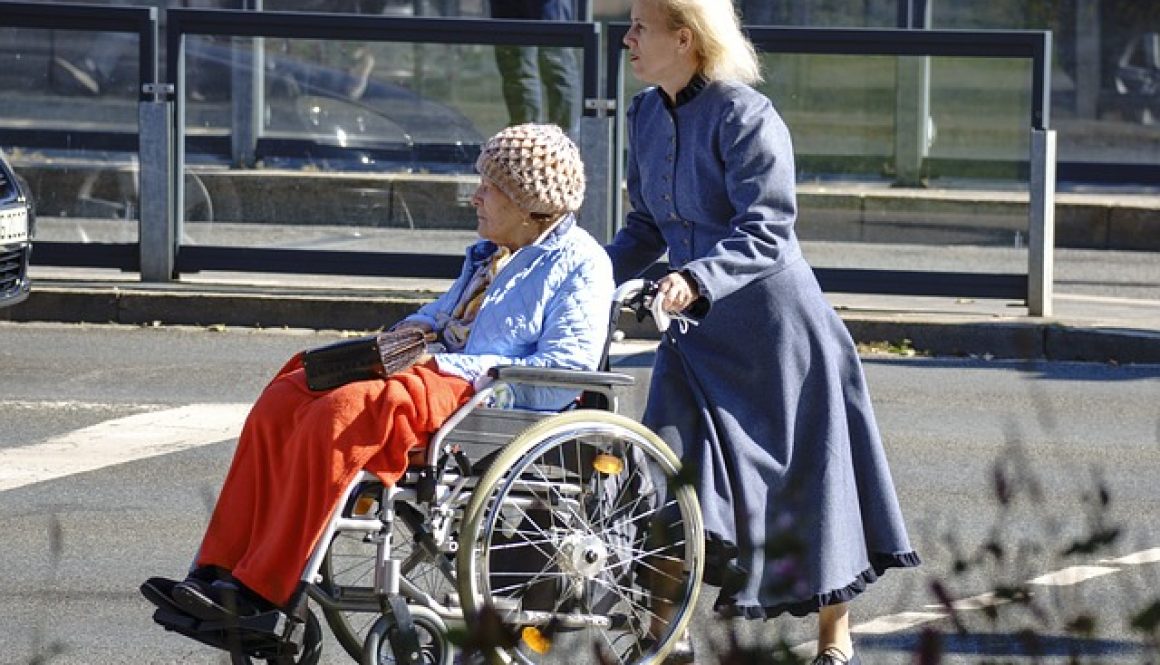Board-Certified Patient Advocate: A Guide & Protector of Autonomy
I’ve been inspired recently. That’s not to say life has been fun or easy. If you’ve followed this blog for a while, you’re likely familiar with my dual personal and professional roles as a Board-certified Patient Advocate and care partner to my life partner, Brian. While guiding elders and families here in the Clearwater, FL area on the life-care planning process, I’ve also been the lead care partner for Brian as we navigate the latter stages of his Alzheimer’s and vascular dementia.
Those latter stages now have placed my Brian in advanced nursing care, a heart-wrenching decision that HAD to be made for ’round-the-clock care. Managing that care at home? As much as individuals and families aspire to that ideal, in so many cases it just can’t be done. Those conflicting feelings, prepared as I am from decades of professional experience, never go away. Negative experiences – conflict with nursing home staff, feelings of guilt, etc. – are inevitable.
Part of my inner anguish stems from knowing what to spot – knowing how care should be managed, how residents should be treated, and how families and decisions should be respected.
Unpacking those feelings is best saved for a later blog after I’ve had time to reflect. But the inspiration remains for Patient Advocacy as a concept, best expressed by expert Trisha Torrey. Today we dive into what it means to be a guide and protector of autonomy as a Board-certified Patient Advocate.
The Essence of Patient Advocacy
Trisha Torrey beautifully defines a Patient Advocate as a guide or advisor about care policies, emphasizing a crucial point. Patient Advocates are not decision-makers for clients but rather protectors of their autonomy, she says.
This encapsulates the very essence of our role: to empower individuals in making informed decisions about their health care while safeguarding their right to choose.
Guiding Elder Care with Compassion
As a Board-certified Patient Advocate, my role is to be your compassionate guide through the often complex and overwhelming landscape of healthcare. I don’t make decisions for you, but I provide the expertise and support needed to navigate the intricate web of care policies and options.
Compassion is easily defined, but hard to pin down. It literally means “to suffer together.” Even the strongest desires to be the most compassionate caregiver, run against the grain of human existence. No human wants to suffer, but that’s your task – to suffer alongside your loved one no matter the stakes or outcome.
So that’s where I come in, helping you as a care partner to deliver compassion for your loved one by reducing or eliminating stressful decisions.
Coordinating Care with Precision
One of the key aspects of Patient Advocacy is coordinating medical care, helpful resources and logistics. This involves ensuring that all aspects of elder care are seamlessly integrated and aligned with their unique needs and preferences.
From medical appointments and treatment plans to financial considerations and emotional well-being, coordinating care is a meticulous process that requires expertise and dedication.
Here are some of the benefits of care coordination in life-care planning:
1. Informed Decision-Making
Life-care planning is a comprehensive process that begins with understanding individual needs and goals. A Patient Advocate empowers care-partner teams to make informed decisions that align with unique values and preferences.
2. Streamlined Communication
Communication breakdowns among healthcare providers can be a significant challenge. I’ve seen this frequently with my Brian and clients alike, as one medical professional makes a decision without considering how it would affect treatment from another.
Of course, they try to communicate. But it doesn’t take much for one prescription to fall through the cracks. Caregivers often spend hours on the phone trying to fill in the blanks.
A skilled and experienced Patient Advocate works to bridge these gaps, ensuring that everyone involved in your care is on the same page. This streamlined communication enhances the effectiveness of your care plan.
3. Financial Wellness
The aging process, in good health or bed, involves financial considerations associated with each step. Among others, the list may include paying for health care, moving to assisted living, estate planning, and the distribution of assets following a loved one’s passing.
Whether it’s understanding insurance policies or exploring financial assistance programs, a Patient Advocate ensures that your loved one receives the care they need without unnecessary financial burdens.
4. Emotional Support
Elder care can be emotionally taxing. As a Patient Advocate, I provide unwavering support, offering a compassionate ear and guidance through the emotional aspects of life-care planning.
It’s stunning how infrequently the emotional needs of care-partner team members are left unaddressed, especially at end-of-life. That’s why, in addition to being a shoulder to cry on myself, I often recommend hospice agencies and death doulas who may provide additional support, counseling and even spiritual care for everyone involved.
Advancing Levels of Care: A Continual Support System
As your loved one’s health care needs evolve, a Board-certified Patient Advocate remains a constant support system. Whether you’re transitioning from independent living to assisted care or facing the challenges of advanced medical conditions, the coordination of elder care must adapt seamlessly to your changing requirements.
Empowerment Through Autonomy: The Maureen Rulison Difference
My approach as a Patient Advocate in Clearwater, FL is founded on the principles of empathy, understanding and respect for your autonomy. I’m not here to dictate choices, but to empower decisions that resonate with your individual and family values.
If you’re ready to embark on a journey of Patient Advocacy and life-care planning, I invite you to reach out. Your elder care journey deserves an advocate who walks with you; not ahead of you.










